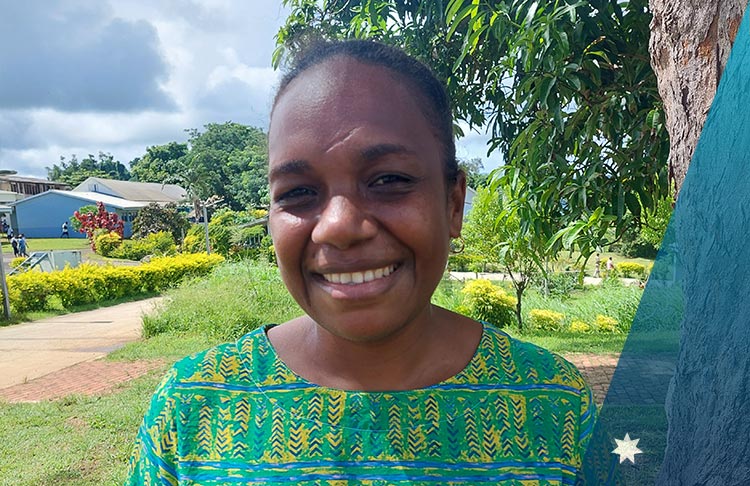
We speak with Australia Awards alumna, Joy Mabonling, who graduated from the University of the South Pacific with a Bachelor of Science and a Graduate Certificate in Education. Joy is now a Science Teacher at Malapoa College in Port Vila.
As a Bachelor of Science graduate, it is timely to be talking to Joy as World Earth Day is almost upon us (22 April) and an opportunity for us all to recognise the impact we have upon our natural environment. The theme for this year’s annual event is Planet vs. Plastics, and it calls to advocate for widespread awareness on the health risk of plastics, the rapid phase out of all single use plastics and an urgent push for a strong UN Treaty on Plastic Pollution.
It is no surprise that Earth Day is chosen by many to take a stand for science and the important role it plays within our world. Joy shares in these thoughts alongside the importance of educating students to fully comprehend what the purpose of Earth Day is, stating ‘I strongly feel it is a requirement that our current and next generations are well equipped with the relevant knowledge and skills in order for them to build a sustainable future’.
In the classroom, it is not limited to a single day to communicate the importance of science and environmental protection. Science educators, such as Joy, have a chance to consistently uphold the human impact on our environment and the development of sustainable practices across grade levels and content areas. Teachers can use their expertise to present these complex issues and concepts in a way that students can access. They can develop activities that allow students to examine arguments with the evidence available and form their own conclusions. Teachers can also empower students to use engineering skills to develop meaningful solutions to environmental problems.
With this year’s theme focusing on the harm plastics can present, Vanuatu can stand proudly as a world leader in the fight against plastics, a Pacific Island nation that became the first in the world to ban single use plastic bags, plastic straws and polystyrene takeaway boxes in 2018. Joy adds ‘students in class are given the opportunity to research and explore different chemical products such as plastics, as well as discussing the impacts on its people, society and natural environment as a whole’.
It is through these opportune moments that the role of teachers and science are able to interconnect and create powerful positive changes. Joy concludes ‘to me, Earth Day is a reminder to always recognise the importance of our natural resources. We must be committed to protect them for future generations in order for us to not only survive but thrive’.
